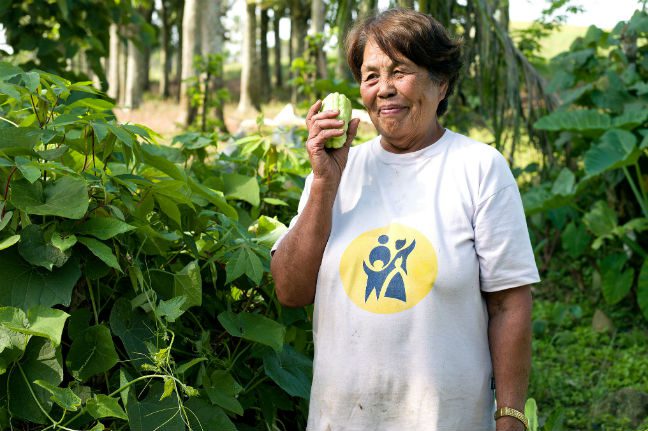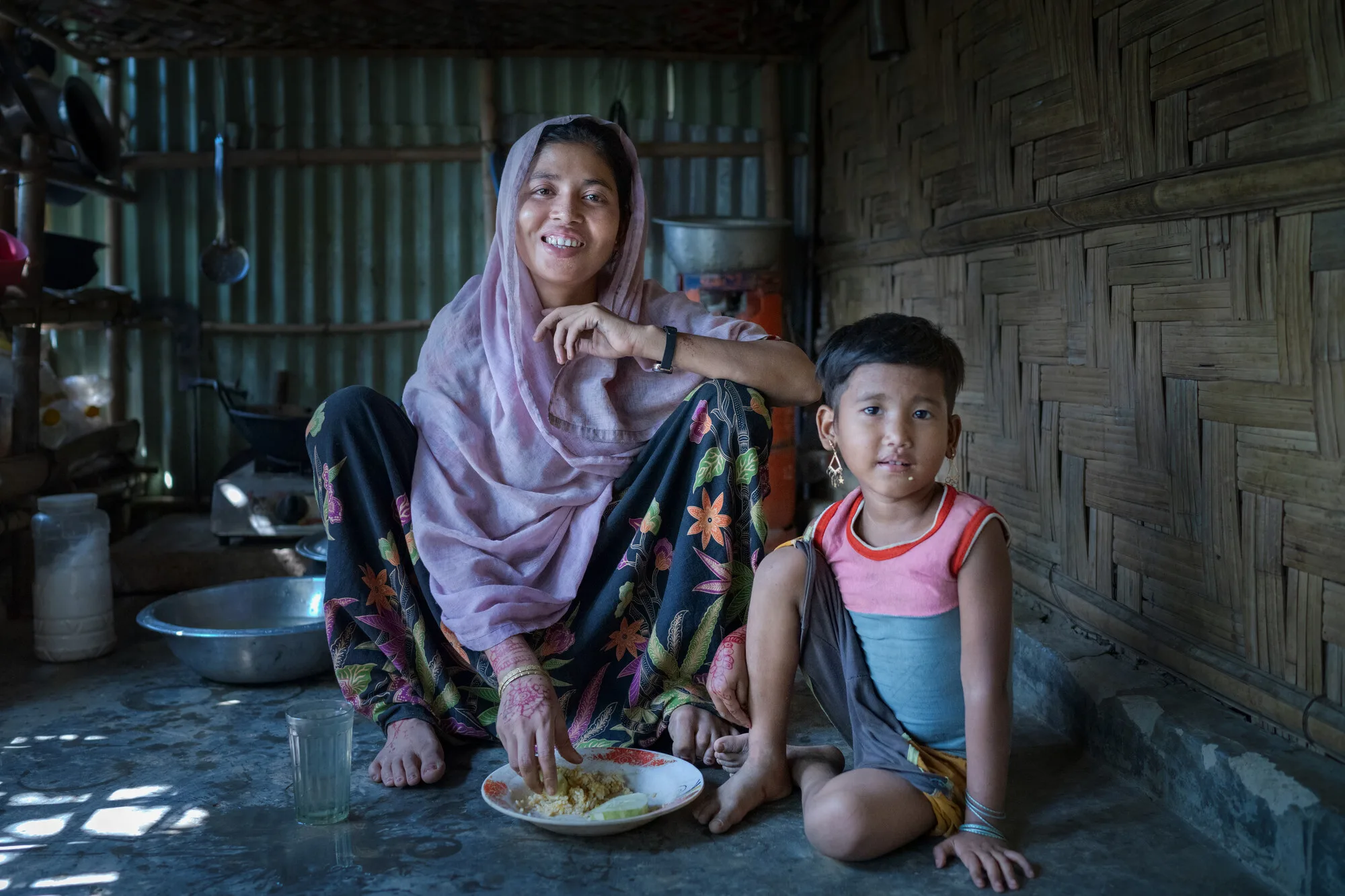Extreme weather is destroying crops and livelihoods in already vulnerable communities in The Philippines. But thanks to supporters like you, women like Lilia can have an amazing impact.
72 year old Lilia has participated in Oxfam programs for almost two years. Today, she’s President of her local Women’s Rural Improvement Club — a program designed to teach new farming techniques to women in her community.
“The women here look up to me…I’m happy to have this responsibility… and share my knowledge with all the other women,” said Lilia.
The increasingly unpredictable weather in The Philippines means traditional crops and farming methods are failing. The loss of these crops can be devastating — families not only lose a precious food source — but the means to provide for their families.
But women like Lilia and the participants of the Women’s Rural Improvement Club are determined to be prepared. With their 20m x 30m garden they trial new farming techniques and practice growing different vegetables. These vital skills ensure Lilia and other members of the community won’t go hungry when extreme weather arrives.
After the club mastered growing vegetables such as eggplant, spinach, cucumber, tomato, onion and garlic at home, they began to sell their produce for income in the marketplace. The money they earn now is used for food, but also for buying new plants to trial in the garden.
In addition to generating both food and a livelihood, the garden encourages community participation. Six people are assigned to tend to the garden each day, ensuring everyone learns new skills that can be applied to their gardens at home.
“Before the garden women here had no income and sat around chatting all day. Now they have something to be busy about and can be productive. The money the women here earn from their own gardens is used for food for the family and things like soap and clothes,” said Lilia.
“People have to work together to make it a success.”
Lilia lived in her community for 20 years before she noticed a drastic change in the weather. These changes have required adjustments to the way communities garden and grow crops.
“I started noticing a change after the year 2000. Before then I couldn’t ever really feel the heat of the sun up here in the hills, but now it’s very intense,” said Lilia.
“Before 2000 we wouldn’t really have to water our plants or gardens as the rain would but now it doesn’t rain as much. When it does rain though it’s so heavy that it floods the roads…”



